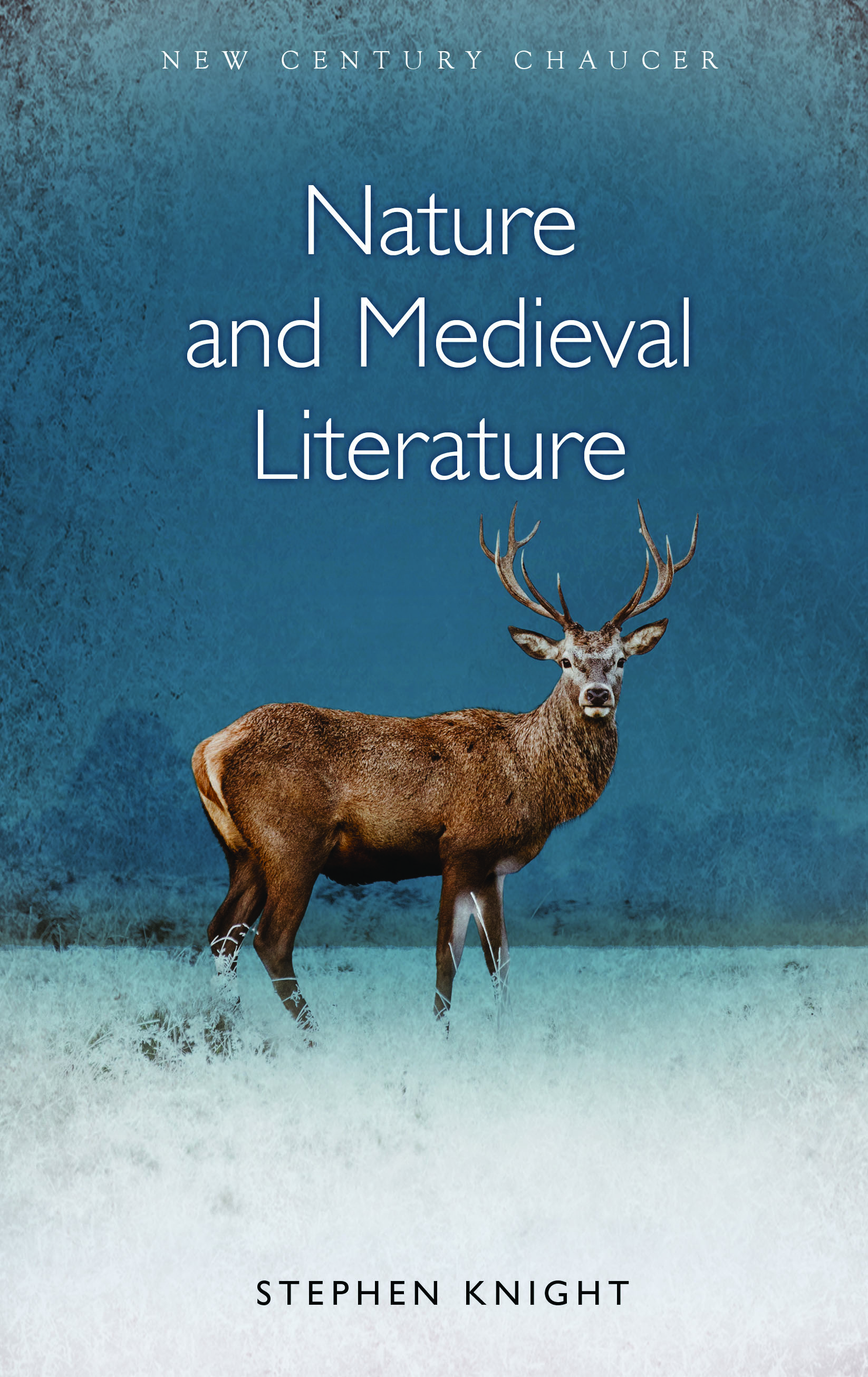Nature and Medieval Literature
Author(s) Stephen Knight
Language: English
Genre(s): Literary Criticism, Medieval
Series: New Century Chaucer
- February 2024 · 312 pages ·216x138mm
- · Hardback - 9781837721023
- · eBook - pdf - 9781837721030
- · eBook - epub - 9781837721047
This book begins by considering ecocritical approaches to literary texts and then moves to a discussion of the ways in which Welsh, French and English authors recount the Peredur/Perceval story. The study then embarks on full-chapter studies of the treatment of nature in a range of major authors and texts, including the work of Chaucer, the Scottish Chaucerians (Dunbar and Henryson), the medieval and early modern outlaw myths (particularly those concerning Robin Hood), the medieval English romances, and finally a selection of medieval English lyrics. The book argues that while some texts represent the actual forces and patterns of the natural and animal worlds, other texts use the natural and animal worlds both as a way of understanding nature itself and as a basis for a critique of the human and increasingly urban world of the medieval period.
Preface
Introduction
1. Towards Ecocriticism
2. Medieval Ecocriticism
3. Ecocritical Approaches in this Study
Chapter 1 Nature and Medieval Welsh Literature
1.Early Poetry
2.Medieval Prose Stories: Culhwch ac Olwen
3.Medieval Prose Stories: the Mabinogi
4.The Human and Natural Poetic Sublime
Chapter 2 Nature in Mainstream Romances: Perceval de Galles (Le Conte du Graal), Peredur and Sir Perceval of Galles
1.Introduction
2.A Forest Dweller Turned Knight
2.1Perceval de Galles
2.2Peredur
2.3Sir Perceval of Galles
3.The Hero Ventures Alone in the World
3.1Perceval de Galles
3.2Peredur
3.3Sir Perceval of Galles
4The Hero Resolves His Errors
4.1 Perceval de Galles
4.2 Peredur
4.3 Sir Perceval of Galles
5. Conclusion
Chapter 3 Chaucer’s Use of Nature in Representation, Narrative and Analysis
1. Introduction
2. Nature and Society Encounter: The Book of the Duchess
3. Negative Nature and Social Culture: The Book of Fame
4. Nature Celebrated and Variegated: The Parlement of Foules
5. Nature, Conflict and Tragedy: Troilus and Criseyde
6. Nature, the Human, and the Unnatural World: the General Prologue to The
Canterbury Tales
7. Engagement with and Separation from Nature: The Canterbury Tales
7.1 Tales with Little or No Engagement with Nature
7.2 Tales which Deal Extensively with Nature
7.3 Tales which Deal with Nature in a Limited Way
Chapter 4 Nature in the Scottish Chaucerians
1.Introduction
2.Dunbar
2.1 Nature and Royalty
2.2Nature and Love
2.3Night and Darkness
2.4 Negative Nature
3.Henryson
3.1 The Moral Fabillis
3.2 Nature in Henryson’s Other Work
3.2.1 Embedded Nature
3.2.2 Dark Nature
3.2.3 Natural Context Openings
4 Conclusion
Chapter 5 Nature in Medieval English Romances
1.Introduction
2.Limited Treatment of Nature
3.From the Forest Onwards
4.Romances with the Natural World Recurring Throughout
5.Romances with Nature Involved in the Plot
6.Conclusion
Chapter 6 Nature and the English Outlaw Myth
1.Nature and the Outlaw Ballad
2.Lord Robin of the Forest
3.Robin Hood and the Romantic Natural Context
4.Nature and Outlaw Novels, Poetry and Drama
Chapter 7 Nature in Medieval English Lyrics
1.Introduction
2.Nature Itself
3.May-time and Love
4.Nature and the Spiritual World
5.Nature and a Negative Human Context
6.Nature Ironic and Vulgar
7.Conclusion


